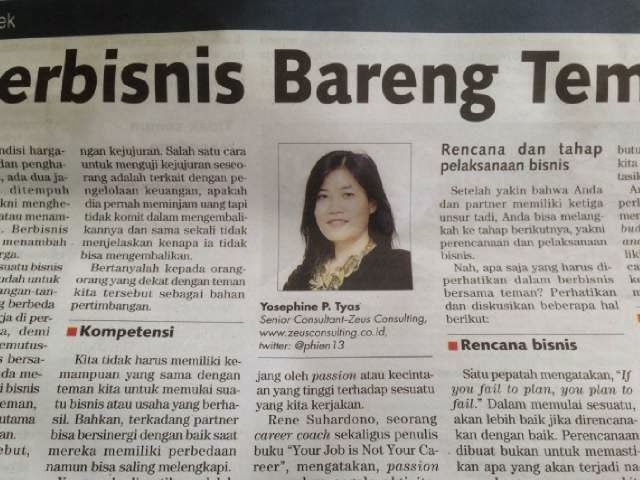The Do’s and Don’ts in Financial Planning After Marriage
(continue from previous post 'How to Tying The Financial Knot' )
The Do’s:
- Do the financial check-up. As soon as possible it should be done, preferably before marriage, and do some action to make the unhealthy financial condition healthier.
- Create financial goals. These should include short, medium and long term, and then make a financial plan to achieve the goals with commitment in the process.
- Avoid consumptive debt. The interest is very high,(while maybe we don’t have investment return that is greater than the interest). You and your partner should save money to buy consumer goods, not paying more than the real price.
- Increase knowledge in financial planning. Get information from the competent people, such as a Registered Financial Associate (RFA) or Certified Financial Planner (CFP). Do not buy the financial products that we do not clearly understand. The Financial products we buy must relate with our risk profile (conservative, moderate, aggressive) and the financial goals term (short, medium, long).
The
Don’t’s:
- Dishonesty. Any relationship that starts with dishonesty will not have positive affect, not optimal, because the two sides did not give the best they have, good effort, resources (assets, income, time). And if there is a problem that is covered up and accidentally open, it could make big trouble and hurt many people, and can lead to lack of trust problems.
- Suspicious. Suspicion or distrust usually arise due to mistakes in the past. But as a family, the process of forgiveness and giving a second chance must always happen so families can remain united and successful in achieving important financial goals.
- No Purpose.Many families simply undergoing routine without having specified financial goals together. So what happens is the high level of consumption ( buying things that not really needed or just for today consuming), it is usually followed by consumptive debt problems. They ignore basic things in financial planning like having emergency fund, pay off consumptive debt, saving and invest for future needs, etc.
Image taken from here.




Comments
Post a Comment